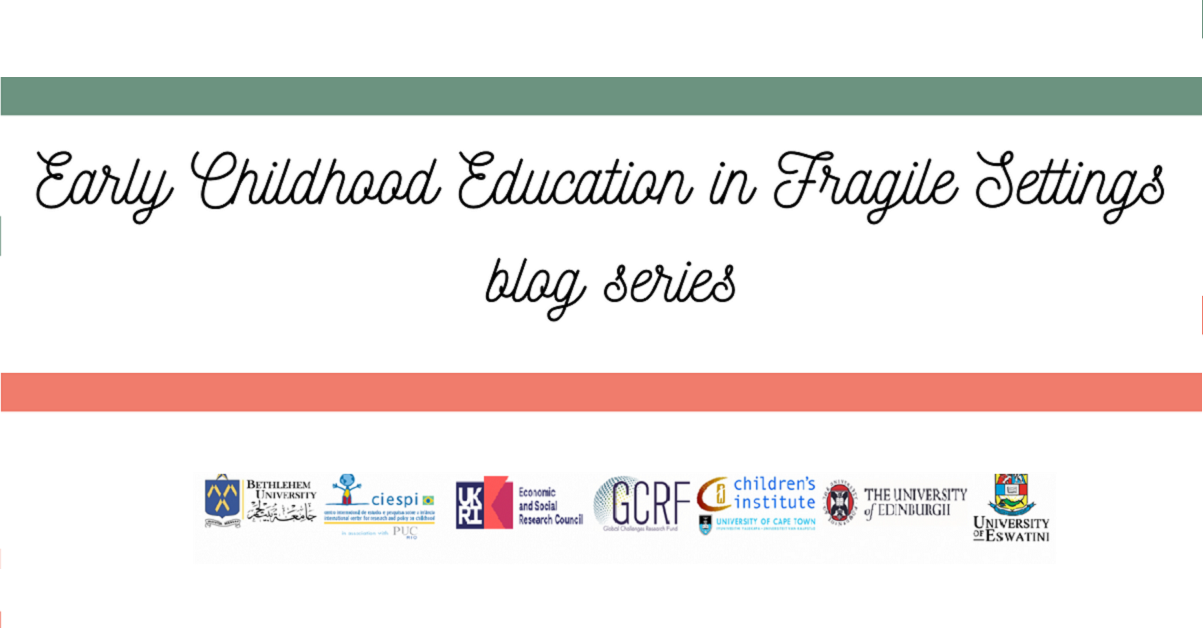Launch of the Early Childhood Education in Fragile Settings SIPP blog series

Author: Dr Christina McMellon, University of Edinburgh
This post Launches the Early Childhood Education in Fragile Settings blog series and sets out the upcoming entries.
Safe, Inclusive, Participative Pedagogies (SIPP): Early Childhood Education in Fragile Settings
Early childhood education has increasingly been recognised as a societal priority. We know from research that children can be seriously disadvantaged when they – and their communities – face such factors as discrimination, violence, and poverty. We also know the value that focusing on early childhood and early childhood education can bring to addressing such disadvantages. We can support young children themselves, their parents and other kin and early years practitioners, resulting in improved respect for young children’s human rights, improved gender equality and inclusion, and better outcomes for both individuals and communities.
UKRI GCRF Safe, Inclusive, Participative Pedagogies (SIPP): Early Childhood Education in Fragile Settings is a partnership research project undertaken with partners in Brazil, Eswatini, Palestine, South Africa, and Scotland. We recognise the urgent need to conduct action research to understand these factors. We are working with communities, local and national partners to promote change, for young children before school age. Our work includes scanning early childhood policies at national and more local levels, building relationships with key community and national actors, and working with communities to develop their priorities for early childhood education and how to address them. Throughout, we are committed to the participation of children and their families in the research, exploring creative methodologies to involve them. In the end, we will develop an economic case for safe, inclusive and participative early childhood pedagogy. As we progress with this project through the COVID-19 pandemic, we have found this agenda only more important for the communities involved than when we started.
Over the coming weeks we will be introducing the four main communities that the project is working with and will explore our progress and our plans. We would love to enter into conversations with you about the importance, opportunities and challenges of Early Childhood Education. Please get in touch at GCRFearlyyears@ed.ac.uk.
“The support of UK Research and Innovation (UKRI), and the Economic and Social Research Council (UK) is gratefully acknowledged.”




Comments are closed
Comments to this thread have been closed by the post author or by an administrator.